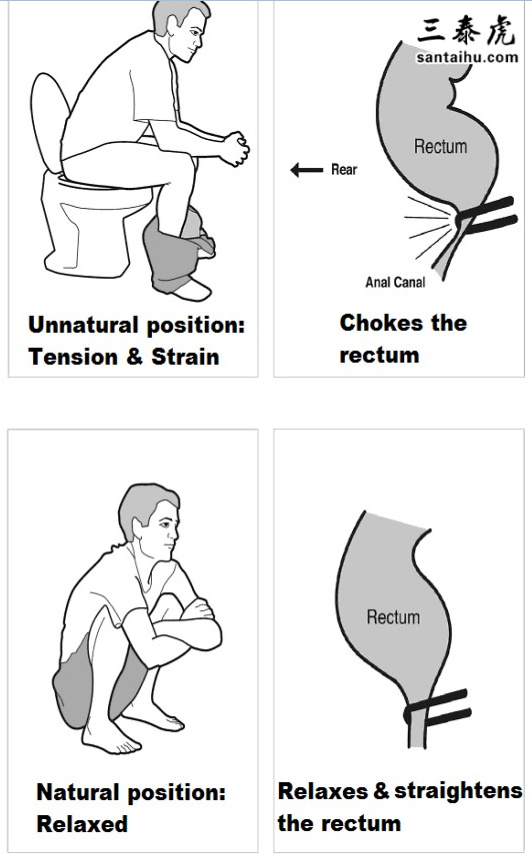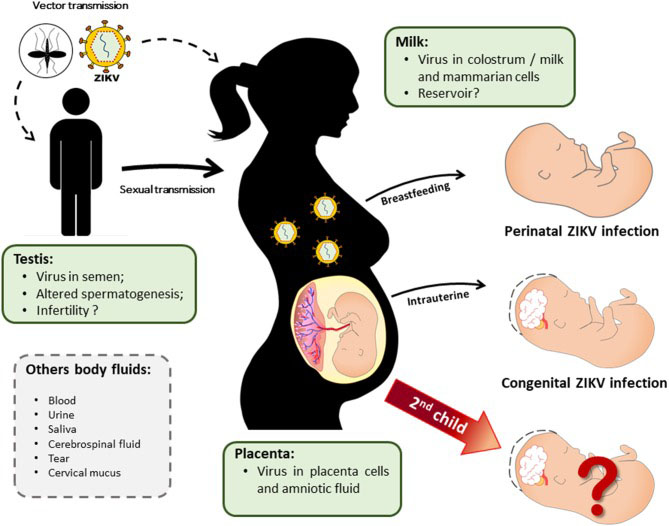How to deal with a bratty child
9 Ways to Transform Bratty Behavior
"Dr. Laura, I was wondering if you could do a post about empathic limits. What is an appropriate response to bad behavior from an unconditional parenting approach? For example, every time I come home with my daughter, I remind her that when we go inside she must take off her shoes. She often will immediately run to the couch and climb onto it with her shoes on. I know she does this precisely because she knows she's not supposed to, and now I warn her if she doesn't get down she will get a timeout. Usually she gets a timeout. I can't not respond when she does something like this. What can I do instead of a timeout?"
There is no such thing as a brat, only a child who is hurting. When our starting point as parents is a close bond with our children, we are their North Star, the point around which they orient. They want more than anything in the world to protect that relationship and meet our expectations. If our child is acting like a brat, she's either signaling that she needs a stronger connection with us, that she's got some big feelings she needs our help with, or that she can't meet our expectations without some tailored support.
So given that "aha!" insight, which would be the most effective tactics to transform "bratty" behavior into cooperative behavior?
1. Having high expectations for our child's behavior
2. Ignoring "bad behavior"
3. Screaming
4. Timeout
5. Give tailored support
6. Setting empathic limits
7. Help the child with the feelings that are keeping him from cooperating by playing
8. Help the child with the feelings that are keeping him from cooperating by crying
9. Hugs
Let's consider each of these in turn.
1. Having high expectations for our child's behavior
Yes, this is an effective tactic. If we don't expect civility in our home, for instance, then we may not get it. But this only works for age-appropriate expectations. And if she knows the age-appropriate expectation and still doesn't meet it, then either she needs help with the tangled-up feelings that are keeping her from cooperating, or she needs a better connection with us so she wants to cooperate.
2. Ignoring the behavior
This only works for temporary issues that you can live with, like your child acting out because he's very hungry. In that case, acknowledge non-judgmentally ("You are so hungry, you're getting very impatient. Let's calm down and get you some good food!"), address his need, and he'll be back to his sunny self. But if your child is repeatedly testing your limits, always intervene. She is asking for your help.
3. Screaming
This is also known as the parental tantrum. It is never an effective tactic in enforcing your expectations, except to the degree that it scares your child into immediate compliance. When we do this in adult relationships, it erodes the relationship. When we do it with our kids, it also erodes the relationship—so kids act out even more. It also scares the child, so it adds an overlay of tangled-up feelings that the child will then end up "acting out" by misbehaving. Screaming is a symptom that you've slipped onto the low road of parenting, into fight or flight, and you're seeing your child as the enemy. Our child is never the enemy, no matter how ugly he's acting. He's a very young human with an immature brain who is signaling that he needs our help.
Our child is never the enemy, no matter how ugly he's acting. He's a very young human with an immature brain who is signaling that he needs our help.
4. Timeout
This sometimes stops the "bad" behavior immediately. However, it's a symbolic abandonment (which is why it works.) It gives your child the message that you're not there to help her with those upsetting feelings that are driving her to act out. It creates power struggles. And it stops working as kids get older, leaving a child who is in rebellion rather than wanting to cooperate.
5. Tailored support
Maybe he needs a warning about the transition coming up. Maybe she needs a written schedule, with photos, of her morning routine, so she can feel in charge of it. Maybe you need to play a game that gets her giggling about power and obedience. Maybe you need to put an old sheet on the couch for a while to keep it clean. But if your repeated reminders that she needs to take off her shoes before getting on the couch aren't working, move on to:
6.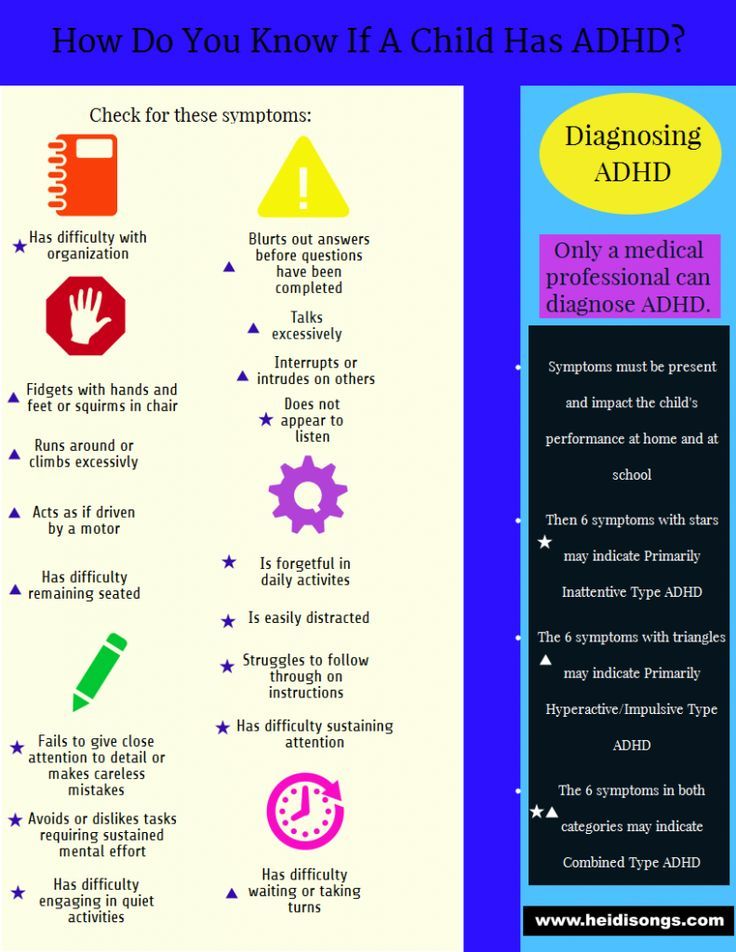 Setting empathic limits
Setting empathic limits
Kids don't share our priorities. Why should they? They have their own priorities (jumping on the couch!) and no understanding of our world view (couches cost money). So it's our job, all day, every day, to guide them. "Shoes get the couch dirty, no shoes on the couch." The more firm and consistent you are, the more your child can accept your limit, grieve about it, and move on. The more empathic you are, the more your child will accept your limits without needing to rebel against them. Redirection is the best way to stop the behavior because it channels the energy. "I see that's so much fun! And you know the couch is not for jumping. Come, off the couch. Let's go jump on the old mattress in the basement."
All kids will naturally test limits to see if they're firm. That means for now you'll need to stay with her as you enter the house and helping her get those shoes off, every time, before she heads for the couch. Eventually, it will become a habit, and neither of you will even think about it.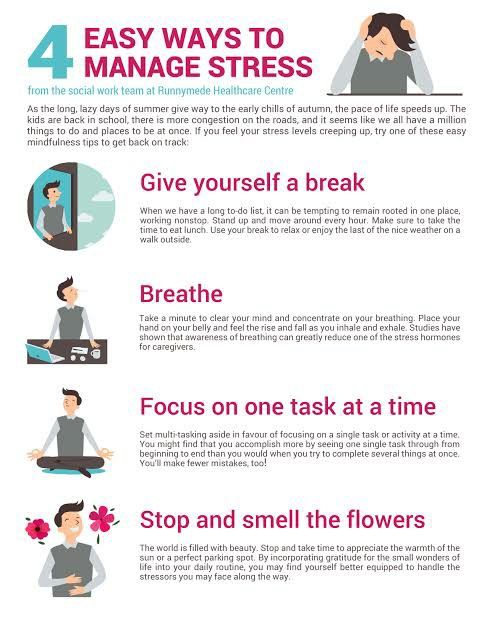
But what if she darts away from you and makes a beeline for the couch, before you can get her shoes off? She's sending you a signal that something's getting in the way of her cooperating with you. What? Emotions. Kids store up their feelings, waiting for a safe chance to release them with a compassionate witness. That's you. If you get to the bottom of these tangled emotions, you'll stop "bad" behavior before it starts.
Sure, you can make her "stuff" those feelings, by screaming at her or punishing her. She'll comply, eventually—until she's old enough to rebel. The teen years won't be pretty. Her chances of depression or anxiety go way up. And you'll never be as close as you could be, to this person you brought into the world.
Or you can help her with those feelings. It will help her cooperate with your agenda. It will teach her emotional intelligence. It will make her more able to meet your expectations as she gets older. And it will bring you closer. How? Play when you can. Cry when you have to.
Cry when you have to.
7. Help the child with the feelings that are keeping him from cooperating: Play when you can.
Take a deep breath and repeat after me: "It is not an emergency. We can play with this." Keep your tone light and playful, so you get her giggling. "Excuse me?! Are you on that couch with your shoes on?! We'll see about that! I'm the couch protector, and I always get my girl!" Scoop her up, laughing, and toss her over your shoulder. As you run around the house with her, take her shoes off and drop them. Sing a silly chant about how much you love her and you'll never let her go. Keep dropping her on the couch and scooping her up again. Finally, collapse together on the couch for a good snuggle.
The next time you enter the house, before you go in the door, tell her you want to play the game again, but first she has to take her shoes off with you, right inside the door. Transform the game into one of re-connection and celebration. Use it any time you need to interrupt "bad" behavior. Giggling releases upset feelings just as crying does, and it triggers oxytocin, the bonding hormone.
Giggling releases upset feelings just as crying does, and it triggers oxytocin, the bonding hormone.
8. Help the child with the feelings that are keeping him from cooperating: Cry when you have to.
What if she doesn't giggle? Won't let you take her shoes off? Gets angry and defiant? She's beyond play. Those big feelings are bubbling up, and she's trying to keep them down with anger. Summon up all your compassion. Look her in the eye. Set your limit clearly and kindly. "Sweetie, you know shoes get the couch dirty. I won't let you wear shoes on the couch." She may burst into tears. Hold her while she cries, if she'll let you. Tell her she's safe. If, instead, she lashes out, remember that the tears are right behind the anger. She just needs to feel a little safer to let them out. Which brings us to:
9. Hugs
I agree that hugs are not our only tactic to reconnect and create cooperation. But they are probably our most useful. Hugs help our child feel safe enough to cry and let out the upsets that are driving her to act out. Hugs reconnect us, so our child WANTS to cooperate. And they remind us that our child, even if he's acting "bratty," is our beloved. Hugs rescue our child from the low road he's stumbled onto and pull him back up onto the high road with us. Hugs are no substitute for daily "special time" with your child, but nine hugs a day are essential for him to thrive.
Hugs reconnect us, so our child WANTS to cooperate. And they remind us that our child, even if he's acting "bratty," is our beloved. Hugs rescue our child from the low road he's stumbled onto and pull him back up onto the high road with us. Hugs are no substitute for daily "special time" with your child, but nine hugs a day are essential for him to thrive.
7 signs you're raising a spoiled brat
Excuse me, ma’am, but is that your kid throwing all the condoms off the shelves in the drugstore, ignoring you when you ask him to stop, kicking and screaming that he must have the blue and the red boxes and telling you that he hates you when you calmly indicate it’s time to leave?
Oh, that’s not your child? Must be mine. What a brat. Every mom has her embarrassing days; some are just brattier than others.
“I often wonder if my daughter is the most misbehaved kid in the world,” says Jennifer Gustafson, of Darien, Connecticut, and mother of Lyla, age 3. “She goes from the sweetest girl to Satan in seconds when she doesn’t get her way.”
“She goes from the sweetest girl to Satan in seconds when she doesn’t get her way.”
For example: “If she says, ‘Mommy, I’m going to jump off the roof,’ and I don’t let her, she’s going to kill someone, and it’s usually me,” Gustafson says.
She says she’s been kicked, bitten and scratched by her adorable, yet menacing toddler. Bratty? Maybe. Just being a 3-year-old? It’s that, too.
When bratty behavior is a problem
Psychotherapist Robi Ludwig; Katie Bugbee, a global parenting expert; and Nancy Samalin, author of “Loving Without Spoiling” all agree that we’re living in an age of child-centric homes. Whether both parents work and feel guilty for spending too much time at the office, or they just can’t stand to see their children cry (or are too tired to deal with it), permissive parenting has created an entitled set of kids.
“Being too permissive usually involves our bribing and pleading and often giving in,” says Samalin. “It means saying ‘No,’ but meaning ‘Probably not’ or ‘I’m not sure,’ which may feel loving in the moment but gives your child too much power.”
“It means saying ‘No,’ but meaning ‘Probably not’ or ‘I’m not sure,’ which may feel loving in the moment but gives your child too much power.”
The experts weigh in on seven spoiled rotten behaviors and offer advice on how parents, or their sitter or nanny, can take back control.
1. Constantly throwing tantrums
You can expect preschool-aged children to have frequent temper tantrums. Some just can’t be avoided and need to run their course. But when fits erupt any time you set limits, it’s a big problem. But what do you do?
How to handle: First, don’t have a tantrum yourself! Be empathetic and let your child know that you recognize that they’re angry, but this behavior isn’t acceptable. Help them find the right words to express their feelings, and don’t be afraid to take away a privilege or give a “time out” if you feel the situation calls for it.
2. Hitting, grabbing, biting, acting bossy and everything else that embarrasses you
“It’s mine!” Why does it seem like kids know how to use that phrase before their own names? Toddlers and young kids have primitive impulses, like grabbing toys, biting and hitting, to express their feelings.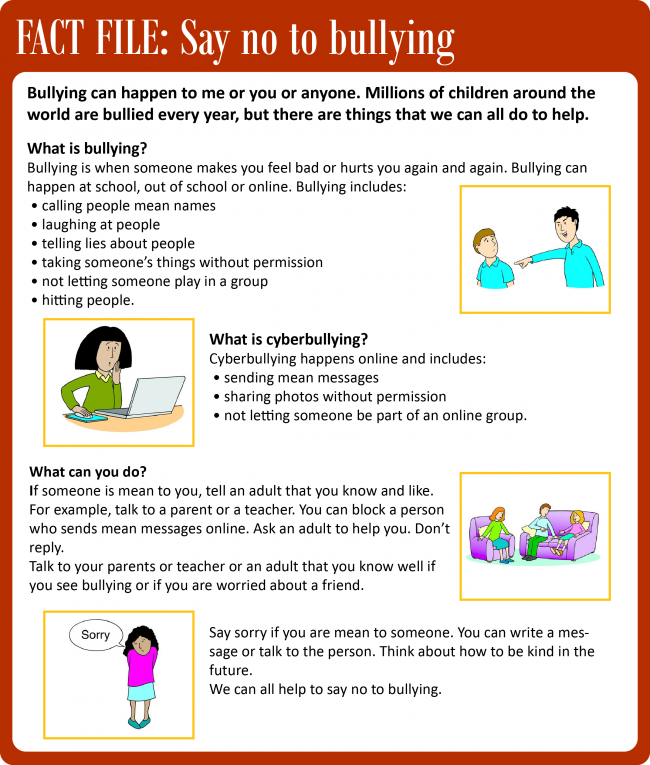 They all do it, but when your daughter is the biggest offender in the playgroup, you worry she’ll get labeled a brat.
They all do it, but when your daughter is the biggest offender in the playgroup, you worry she’ll get labeled a brat.
How to handle: Stave off the stigma by holding your child accountable for her behavior in an age-appropriate manner. If she freaks out whenever a playmate wants to try her remote control train, have her help you put it away before friends arrive. When a tiff breaks out over the blue pail at the sandbox, talk about sharing and ask kids to take turns. Remember not to yell and that it’s OK if your kid gets upset. She’ll forget about it in two minutes.
3. Whining from the moment he wakes up
Forget wailing police sirens, jackhammers and chalk on a blackboard. The sound of your child whining is the most irritating noise in the world. Waiting in line at the bank or being dragged shoe shopping is boring for kids, and you can’t blame them for getting whiny. But most often that squeaky, drawn-out bleat means your child is trying to turn your “no” into a “yes. ” Cookies for breakfast? No way! Just five more minutes on the iPad? It’s been an hour! And if “no” is truly how you feel, you need to stand your ground no matter how much you want your child to just be quiet already.
” Cookies for breakfast? No way! Just five more minutes on the iPad? It’s been an hour! And if “no” is truly how you feel, you need to stand your ground no matter how much you want your child to just be quiet already.
How to handle: Children learn really quickly how far they have to go to manipulate mom and dad. Inform your child: “I don’t like when you speak like this, and I can’t understand you.” Tell her you won’t respond until she uses her regular voice. Remember, an unhappy child is not an unloved child. In the short-term, it’s not pleasant (for you mostly), but kids need to learn they can’t always get what they want. Try to ward off whining with some preventive parental medicine. Bugbee suggests that if you know your daughter will whine for ice cream each time you leave the playground and pass the Good Humor truck, prepare her ahead of time and give her control over the decision: “We will see the ice cream truck, but we can’t stop today. Are you OK with going to the playground instead?”
4.
 Acting defiant and always negotiating
Acting defiant and always negotiatingA kid can say “No!” — and they will in the most snotty tone — but that doesn’t mean you have to obey or accept that answer. The bratty child has a real intolerance to not getting her way. She doesn’t follow your rules and ignores when you say “no “or “stop.” This usually leads parents to come up with a payoff. When your daughter is accepting more bribes than a corrupt politician, you’re cultivating a top-notch manipulator.
How to handle: Stop sweetening the deal and you’ll cut down on the defiance. Instead, offer your kids rewards when they’ve exhibited good behavior. The best prize is sharing special time with you.
5. Complaining of being bored
Moms would give anything to feel bored. Ah, the luxury of having nothing to do except sit and stare into your really messy family room. But the child who always complains he’s bored is probably the one who can never be gratified. He gets one toy and immediately moves on to the next item he has to have.
How to handle: Help teach your son the difference between what he wants and what he needs. He probably won’t really get it until early elementary school, but you can start the process early. The next time your son insists he wants a new toy, let him make the choice. Seriously. Choose two goodies at the store you would be happy to buy him and ask him to select. He’ll feel empowered and proud of his decision.
6. Talking rudely to adults and being mean to peers
Grandma is probably sneaking your kids candy on the sly, so they have little reason to tell her off. But when her hugs and kisses start to feel smothering, the kids might be tempted to tell granny to go away or to talk back to her. A child that speaks or behaves rudely to an adult — especially to a relative — needs to be corrected.
How to handle: Tell your son he hurt grandma’s feelings, and he is not to speak that way or treat people that way. You can never excuse bad behavior because it just shows you’re going along with it. Calmly pull your child aside, says Bugbee, and say something like: “That’s not a kind thing to say to grandma. Please apologize.”
Calmly pull your child aside, says Bugbee, and say something like: “That’s not a kind thing to say to grandma. Please apologize.”
7. Controlling your life
Raising kids is a full-time job, but mom and dad deserve to be just a wife and husband sometimes. Always putting your child first — above yourself and your marriage — sends a message to your son that the world revolves around him.
How to handle: Book that weekend at the spa. Have dinner with your spouse. Whether you get Grandma to come for the night or hire a babysitter, you need to plan a date night. It’s heartbreaking to have your daughter sob and ask you stay when you have one foot out the door and 8 p.m. reservations, but parents are allowed to have play dates, too.
How to respond to the whims of children
home
Parents
How to raise a child?
How to respond to the whims of children
- Tags:
- Parent lecture hall
- 1-3 years
- 3-7 years
- 7-12 years old
- baby whims
Children's whims worry many parents: they occur suddenly against the background of a completely prosperous behavior of the child. Most moms and dads are familiar with the situation when generally calm children begin to act up for any reason. And the older the child becomes, the more reasons for tantrums he may have: they didn’t buy a toy, like other children, they didn’t give him sweets, they went to play on the wrong playground. In order not to form a habit in a child to get what they want with the help of crying and screaming, parents should figure out what are the reasons for children's whims. nine0003
Most moms and dads are familiar with the situation when generally calm children begin to act up for any reason. And the older the child becomes, the more reasons for tantrums he may have: they didn’t buy a toy, like other children, they didn’t give him sweets, they went to play on the wrong playground. In order not to form a habit in a child to get what they want with the help of crying and screaming, parents should figure out what are the reasons for children's whims. nine0003
Each age has its own whims
The propensity to whims is associated with the age and psychophysical characteristics of children. Most often whims appear in early childhood. Moreover, the younger the child, the brighter he has such manifestations.
Capriciousness in children under two years old
At the age of two years, whimsical childhood may be caused by overwork, change of scenery or illness of the child. But they are easy to avoid. To do this, parents need to properly organize the daily routine of the child and make sure that he feels comfortable and safe. nine0003
nine0003
Whims in children from two to five years old
In the period from two to five years, the child begins to actively express his disagreement with the actions of his parents and tries to force them to fulfill their own desires. Adults should not establish dictatorship and put pressure on the baby with the authority of the elder. Such relationships with children are considered the most unfavorable for the formation of personality. According to research, an effective parenting style is cooperation, which is based on the principle of bringing all family members together. You can learn about what parenting styles exist by reading the article “Problems of Education”. nine0003
Whims in children after the age of five
Whims in children aged five and over are the result of an established habit to achieve one's own goal not by dialogue, but by crying and crying. Recommendations to parents in this case - first of all, ignore attempts to manipulate yourself. Invite the child to think about whether he really needs what he asks you for. If his request cannot be fulfilled, then explain to him why. Your refusal will not be taken painfully if the child understands why he cannot get what he wants. nine0003
Invite the child to think about whether he really needs what he asks you for. If his request cannot be fulfilled, then explain to him why. Your refusal will not be taken painfully if the child understands why he cannot get what he wants. nine0003
How to deal with a child's whims: 7 tips for parents
Many parents do not know how to respond to children's whims and give vent to emotions. The child psychologist of the portal "I am a parent" gives advice on how to behave to moms and dads when a child is naughty.
1. Remain calm in any situation
In any situation, try to remain calm. Do not yell at the child: find a way to get your point across to him differently. Explain why you won't do what he wants. If the child does not respond to your arguments, wait until he calms down and can accept your words. In order to bring the child out of hysterics, hug him tightly and hold him in your arms for a while. Tell your child that you love him even in those moments when he is angry, but it upsets you if he screams loudly and throws himself on the floor. nine0003
nine0003
2. Be patient
It is better to wait out a tantrum in a public place without reacting to the child's behavior and the comments of others. If possible, take the screaming baby to the car or take it out of the store to the street. When he calms down, calmly discuss the situation with him and explain that it is unacceptable to behave in the presence of strangers.
3. Keep your word
If you said no, stick to this no matter how much you feel sorry for your baby. Many parents are ready to allow their children anything, as long as they stop screaming. By doing so, they reinforce the child's undesirable behavior. Psychologists advise all family members to adhere to the same parenting strategy. This will help prevent children's whims at the stage of their inception. nine0003
4. Use reasonable arguments
Try to "negotiate" with the child. Children over the age of four already understand the connection between their bad behavior and subsequent punishment. To do this, set clear rules for your child. For example, “if you don’t stop screaming, you will be left without cartoons.”
To do this, set clear rules for your child. For example, “if you don’t stop screaming, you will be left without cartoons.”
5. Switch the child's attention
Do not punish your child for whims. It is wiser to divert his attention to something else. For example, asking to find some product on the shelves or offering to carry a basket in a supermarket. The need to perform any action will help distract the child from his whims and desire to insist on his own. nine0003
6. Prevent children's whims
Try to prevent children's whims. Avoid situations where the likelihood of a tantrum in a child is high. So, parents should not go to the store with a hungry and tired child if they do not want to cause a new explosion of emotions.
7. Do not leave the child alone
If the child does not make contact, do not leave him alone in a stressful state. Excessive guardianship of the baby in this situation is also devoid of common sense. After all, it is by whims that children protest against parental supervision and demonstrate a desire to be independent. So just keep going about your business. Then the child will know that you are always there, and your decision is final. nine0003
So just keep going about your business. Then the child will know that you are always there, and your decision is final. nine0003
Svetlana Koroleva, an actress, TV presenter and mother of three children, told the portal “I am a Parent” about how children cope with their whims in a large family.
Ekaterina Kushnir
Take a psychological test on the portal "I am a parent" and find out if you spoil your child too.
Do you spoil your child?
Stubbornness and whims of children 2-3 years old
Stubbornness and whims in children are not uncommon. Sometimes there are complaints only about stubbornness, sometimes only about whims, and sometimes they complain about both. They can alternate in the same child at different ages. Both stubbornness and whims are two sides of the same violation - a manifestation of the difficulties of socialization: in stronger children this is expressed in stubbornness, in weak ones - in whims. nine0003
nine0003
The first manifestations of stubbornness are found in very young children - at the age of 2-3 years. It is during this period that the child dramatically increases activity, independence, perseverance in achieving his own, even the most uncomplicated desires. At this time, the baby may already have his own opinion, which does not always coincide with the opinion of his parents, and tries to defend it. One of the ways to stand your ground is stubbornness - the first attempt to stand your ground.
The tactics of parents during this period should be reduced to patient and persistent, but soft in form, introducing the child to the rules and norms accepted in society. From the adults around him, the baby learns the correct ways to act with objects: the cat can be stroked, and not pulled by the tail; the book can be leafed through, looking at the pictures in it, but you can’t tear or wipe a puddle on the floor with it. In communicating with adults, the child also understands the first rules of behavior with people: you can count on the help of adults if you ask them for it, but you can’t get your way by screaming, crying, etc.
The desire of parents to eradicate stubbornness is always to some extent the source of this very stubbornness and aggravates its manifestation. Stubbornness is characteristic of children who are energetic, rather “strong in spirit”, with high self-esteem. Is there any point in fighting so persistently against this peculiar manifestation of the child's independence? Wouldn't it be better to direct all the qualities that underlie stubbornness in the right direction? This is possible only under one obligatory condition - respect for the baby.
At times, all children are capricious, for example, when they suddenly break their habitual way of life - they are placed in a kindergarten, but when the situation returns to normal, caprices also disappear. If they become permanent, a habitual form of behavior, then this is a signal of trouble. A capricious child, as a rule, is in a special state of “readiness” for a whim: if a stubborn baby shows his stubbornness only in response to the behavior or demands of his parents, then the capricious one begins to sulk, whine and cry for any reason. If for the “stubborn” the most important thing is not to give in to an adult, but to insist on his own, and if the adult lags behind, gives up on him, he will only be happy, then the “capricious”, on the contrary, rather strive to achieve even more attention to himself, to his person . A stubborn child always has some kind of opinion, desire, goal that he achieves. His favorite expression: “I want! ". A capricious child has favorite words: “I don’t want to! ". He prefers to consistently refuse everything that adults offer him, in the hope that he will finally agree. He really likes to be in the center of attention, therefore, refusing something, the baby practically never offers his own option. nine0003
If for the “stubborn” the most important thing is not to give in to an adult, but to insist on his own, and if the adult lags behind, gives up on him, he will only be happy, then the “capricious”, on the contrary, rather strive to achieve even more attention to himself, to his person . A stubborn child always has some kind of opinion, desire, goal that he achieves. His favorite expression: “I want! ". A capricious child has favorite words: “I don’t want to! ". He prefers to consistently refuse everything that adults offer him, in the hope that he will finally agree. He really likes to be in the center of attention, therefore, refusing something, the baby practically never offers his own option. nine0003
If a child's stubbornness is the result of parents' excessive demands, whims, on the contrary, are the result of their relatives' excessive compliance. The main thing that parents should do is to change their attitude towards the child, abandon the usual “authoritarian” position, learn to treat him not as a completely subordinate and dependent being, but as a person who has certain rights, his own opinion, which is completely deserves respect. A capricious child usually grows up in an atmosphere of universal indulgence to all his desires. He does not meet with a strict, categorical refusal, even in those cases when it is necessary. Such a child is lack of initiative, does not know how to make any effort, is not familiar with the exactingness of adults and cannot imagine another life. Usually, children who are prone to whims value the attention of adults very much and painfully endure its absence. It is not their fault that this attention is most often expressed in endless persuasion or discussions about what the child does not want, but what he wants. It is necessary to diversify the experience of communicating with adults and peers, include them in a common cause, captivate them. It is necessary to encourage the independence of the child in every possible way, to offer him to do something very interesting himself: wash his socks, build a “garage” and put all the cars there, etc. The element of independence in most cases is perceived by preschoolers as a very important and new, previously inaccessible privilege .
A capricious child usually grows up in an atmosphere of universal indulgence to all his desires. He does not meet with a strict, categorical refusal, even in those cases when it is necessary. Such a child is lack of initiative, does not know how to make any effort, is not familiar with the exactingness of adults and cannot imagine another life. Usually, children who are prone to whims value the attention of adults very much and painfully endure its absence. It is not their fault that this attention is most often expressed in endless persuasion or discussions about what the child does not want, but what he wants. It is necessary to diversify the experience of communicating with adults and peers, include them in a common cause, captivate them. It is necessary to encourage the independence of the child in every possible way, to offer him to do something very interesting himself: wash his socks, build a “garage” and put all the cars there, etc. The element of independence in most cases is perceived by preschoolers as a very important and new, previously inaccessible privilege . It is necessary to take advantage of this and in every possible way support the conviction in the baby that he was terribly lucky when, for example, he was allowed to put the plates on the table himself or something else. nine0003
It is necessary to take advantage of this and in every possible way support the conviction in the baby that he was terribly lucky when, for example, he was allowed to put the plates on the table himself or something else. nine0003
In general, in order to eradicate both stubbornness and whims, a conscious change in the behavior of adults is necessary, since the roots of these changes lie not in the child, but in the parents. It is useless to look for the source of stubbornness and whims in a child.
"In the realm of stubbornness and whims."
Raising children can bring pleasure and joy. Any parent devotes a significant part of his life to interacting with children. At the same time, most fathers and mothers are concerned about the question: how to raise a child healthy, smart, successful? Therefore, each family independently develops its own line of behavior and upbringing of children. How to deal with whims? - one of the most frequently asked questions, regardless of the age of the child. nine0003
nine0003
Capriciousness is the aggressive persistence of a child striving to achieve the fulfillment of his desires at any cost. Such a child does not accept any objections and is ready to make a stormy scene for the sake of fulfilling his every whim. It is clear that such behavior brings a lot of grief to parents. Yes, and the child himself, it does not benefit, being fixed as a character trait, subsequently leads to the formation of absurdity, selfishness and quarrelsomeness.
Whims are not always associated with poor upbringing. At different ages and whims are different. A baby cries due to some kind of discomfort, and this can hardly be called a whim. This is most likely a cry for help. At the age of one, three, five years, the child experiences age-related crises, and these periods bring with them vivid emotional reactions in children. During periods of age crisis, it would be correct to perceive whims as a half-natural psychological reaction. At this time, the child needs a special approach and a sensitive attitude. But if adults raise a child incorrectly, then whims and children's tantrums often become a habitual form of behavior. nine0003
But if adults raise a child incorrectly, then whims and children's tantrums often become a habitual form of behavior. nine0003
Spoiled, excessively caressed children often become capricious. Constant attention is too tiring for the baby, and if the child is happy at first, then later he often even starts to cry. This is a predictable reaction of the child's psyche to the fatigue of the endless attention of adults, to which the baby responds with whims. Therefore, before looking for an answer to the question of how to cope with children's whims, it is worth evaluating your communication with the baby.
The opposite extreme is when a child is given insufficient attention, they are treated with indifference. The child begins to act up, trying to attract attention. And children who are sorely lacking in maternal love and affection very often become irritable and begin to lag behind in development. nine0003
Another reason for the appearance of children's whims is inconsistency or lack of unity in the requirements for the child. For example, if a mother is more strict with her child than a grandmother, and the mother forbids doing much of what the grandmother is allowed to do, then the child will need quite a bit of time to understand: you can be capricious with your grandmother, but this number will not work with mom. Constantly adjusting to each adult, the child begins to experience a great load on the psyche and nervous system, which invariably leads to breakdowns and whims. And adults cannot develop a common tactic on how to deal with the whims of a child, because they do not have a common position. nine0003
For example, if a mother is more strict with her child than a grandmother, and the mother forbids doing much of what the grandmother is allowed to do, then the child will need quite a bit of time to understand: you can be capricious with your grandmother, but this number will not work with mom. Constantly adjusting to each adult, the child begins to experience a great load on the psyche and nervous system, which invariably leads to breakdowns and whims. And adults cannot develop a common tactic on how to deal with the whims of a child, because they do not have a common position. nine0003
Children who do not know any limits are often capricious. They do not develop the ability to restrain themselves, control their desires and emotions. Therefore, it is very important to accustom the child to the necessary self-restraint in a timely manner. The word "no" should be clear to a small child one of the very first. Of course, endless prohibitions cannot be abused. It is necessary to prohibit only what can really harm the child or what he himself can harm.
Stubbornness is one of the most common types of children's whims. It is used as a means of resolving conflicts and contradictions between parents and children. Stubbornness is a peculiar way of self-affirmation of children in the eyes of adults and peers.
Children's stubbornness most often consists in a constant desire to do everything in their own way, in defiance of adults.
The peak of stubbornness falls on the age of about 2.5 years, since at this time children need not only guardianship, but also recognition of their point of view. nine0003
First of all, the cause of stubbornness is the manifestation of the need for self-affirmation. Also, the cause of stubbornness is often a violation of the usual rhythm of the baby's life.
In order to understand how to deal with a child's whims, it is necessary to firmly grasp that whims are not accidental and never appear out of nowhere. They always have some reasons, and if adults react incorrectly to children's whims, then they only support and reinforce them. The right way to wean a child from whims is to know the age-related characteristics of the child's psyche. And most importantly - love and great patience! nine0003
The right way to wean a child from whims is to know the age-related characteristics of the child's psyche. And most importantly - love and great patience! nine0003
What parents can do to redirect their child's naughty behavior.
1. Do not talk to the child at this moment, do not explain the reasons for your actions, do not shame him for unacceptable behavior.
2. It is necessary to give the child the opportunity to feel independent and assert himself. To do this, you don’t need to get involved in a quarrel - you need to look him in the eyes and make it clear that you love him, but you won’t let him do that. Offer alternatives to negative behavior. nine0003
3. Make sure that the baby understands that an adult is nearby, he remembers and knows about him. It is best to use bodily signs of attention: hug the child, stroke, kiss.
4. Start acting as soon as you feel irritation. If you miss this first moment, then (due to increased negativity) it will be more difficult to give your child your attention.
5. Try to give your child more attention on your own initiative, when he does not insist on it. If children feel that they are loved in the family, appreciated, listened to, they do not feel the need to attract additional attention to themselves. nine0003
6. It is also very important that all family members behave in the same way in a situation of whim. Otherwise, your baby will very soon begin to skillfully manipulate dad, mom, grandparents, quickly figuring out what style of behavior to apply with each of them.
"Causes of children's whims".
Many parents are worried about the whims and stubbornness of their children. To the most common suggestion - to wash hands, get ready for bed, put away toys - the child responds either with silent defiance or violent protest. Such reactions in some children appear so often that adults begin to treat this as a natural phenomenon of preschool age. However, it is completely wrong to assume that whims and stubbornness necessarily accompany childhood. Children are not born as such, and this is not their age feature. But still, whims are more often manifested at preschool age. What caused it? nine0003
Children are not born as such, and this is not their age feature. But still, whims are more often manifested at preschool age. What caused it? nine0003
Undoubtedly, the propensity to whims is associated with the age and psychophysical characteristics of children: the younger the child, the more pronounced are the processes of excitation, and in connection with this, impulsiveness, incontinence.
A child's mind and imagination should not be overburdened with many entertainments. Even the most pleasant impressions, but in large quantities, do not bring the child those pleasures that adults mistakenly count on, wanting to give the child something pleasant
But often the causes of whims lie in improper upbringing. The child is constantly crying to achieve the satisfaction of his desires, and adults immediately fulfill them. Gradually, the baby develops the habit of achieving what he wants with the help of crying and screaming. Imperceptibly fixed, this habit becomes a character trait. nine0003
nine0003
The whims of children are sometimes combined with stubbornness. Stubbornness is also a negative reaction to the demands and actions of adults.
Often whims and stubbornness are mistaken for nervous manifestations: the child screams, swings his fists, scatters toys, stomps yoga, lies down on the floor and screams.
Such a scene leads adults into confusion and confusion. The child is lifted from the floor, persuaded, consoled. "Nervous boy! It is necessary to be gentler with him, not to injure him, ”adults think, punishing themselves for the admitted exactingness that caused this“ nervous ”explosion. nine0003
How should one respond to such manifestations of childish whims? First of all, learn to outwardly calmly relate to the cry of a child. It is better to leave him alone at such a moment until this state passes.
The extreme degree of stubbornness, the so-called negativism, is expressed in the senseless resistance of the child to any requirements of an adult the child is endlessly reprimanded, everyone forbids him, shouts at him. In this case, stubbornness is, as it were, a defensive reaction against an excessive flow of educational measures
In this case, stubbornness is, as it were, a defensive reaction against an excessive flow of educational measures
What are childish whims?
Causes of children's whims: whims as a result of the child's morbid condition, his overwork, oversaturation with impressions, deprivation of organic needs, etc.; the lack of a regime, clear rules for family life - prerequisites for the emergence of whims; improper upbringing is the main source of the child's whims (sacrificial parental love, unfailing fulfillment of all the child's desires, spoiledness; inconsistency or extremes in the requirements for the child - unbearable or excessively light requirements; excess or lack of attention to the child); whims as a protest against the injustice of adults. nine0003
Cranky or nervous child?
Do whims affect the moral development of a person?
How to avoid manifestations of children's whims: elimination of the causes that cause whims in a child; changing the living conditions of the child in the family and the entire system of education is a necessary condition for overcoming the whims of children; the educational role of the regime and meaningful life of the child.
Whims and education of moral needs: education in a child from an early age of a sense of duty, a conscious attitude to one's own actions; the presence of feasible duties and rules in the family, ordering children's behavior; - the formation of the child's concepts of "impossible", "possible", "must". nine0003
ADVICE
- A clear routine and meaningful life of a child is the main condition for the formation of positive stable habits that prevent the occurrence of whims;
- it is easy to distract a small child, skillfully switching his attention helps to stop whims;
- do not say in front of the child that he is capricious;
- do not promise children what cannot be kept, do not achieve obedience through bribery. The child will either stop believing in promises, or will obey, provided that he receives a reward for this; nine0003
- do not forget about the unity of requirements for the child on the part of all adults. An instruction given by one of the family members must be supported by the rest, then the child will not seek protection either from his grandmother, or from his mother or father;
An instruction given by one of the family members must be supported by the rest, then the child will not seek protection either from his grandmother, or from his mother or father;
- children's whims are the result of improper upbringing, most often they are the property of spoiled children.
"How to overcome children's whims".
Stubbornness and whims in children are not uncommon. Sometimes there are complaints of stubbornness, sometimes of whims, and sometimes of both. nine0003
Stubbornness and whims are two sides of one and the same disorder, manifestation of socialization difficulties: in stronger children this is expressed in stubbornness, in weaker children - in whims.
Developing in society, the child masters certain ways of behavior, relationships with people, learns the established norms. The personality of the parents, relationships in the family, the requirements for the child, their consistency, the ability to take into account the age and individual characteristics of the child - these are the main factors that determine the nature of the social development of a small person. The difficulties encountered in this case, behavioral disorders in the form of whims or stubbornness necessarily have in their origin not only the characteristics of the child himself - his character, type of nervous system, habits, etc., but also the behavioral characteristics of adult family members (primarily parents, as well as educators in a preschool institution.
The difficulties encountered in this case, behavioral disorders in the form of whims or stubbornness necessarily have in their origin not only the characteristics of the child himself - his character, type of nervous system, habits, etc., but also the behavioral characteristics of adult family members (primarily parents, as well as educators in a preschool institution.
Most parents give in to the wishes of the child, thereby perpetuating capriciousness as a form of behavior. To overcome this unpleasant character trait, adults require tremendous perseverance and patience. And for this it is necessary to be with children as much as possible, to conduct joint activities with them, games, walks. Usually, children prone to whims, value the attention of adults very much and painfully endure its absence. For example, when parents leave their children in the kindergarten, forget to kiss them or wave their hands, the children begin to cry, act up. The educator has to include them in a common cause, to captivate, to engage in activities. Therefore, parents also need to diversify the experience of communicating with children, engage in joint activities, play games with the child. It is necessary to encourage the independence of the child, offering him to do something interesting himself, while it is important to quietly help the baby, not letting his interest in independent actions fade, and also rejoice with him in his successes. The more meaningful the child’s life is and the more he does himself, the less time and energy remains for whims, and in order to eradicate stubbornness and whims, a conscious change in the behavior of adults is necessary, since the roots of these qualities lie not in the child, but in the parents. nine0003
Therefore, parents also need to diversify the experience of communicating with children, engage in joint activities, play games with the child. It is necessary to encourage the independence of the child, offering him to do something interesting himself, while it is important to quietly help the baby, not letting his interest in independent actions fade, and also rejoice with him in his successes. The more meaningful the child’s life is and the more he does himself, the less time and energy remains for whims, and in order to eradicate stubbornness and whims, a conscious change in the behavior of adults is necessary, since the roots of these qualities lie not in the child, but in the parents. nine0003
Our task, the task of a preschool institution, is to provide optimal, psychologically comfortable conditions for the upbringing and development of children. The whims of children are not uncommon, there is a lot of literature and we hope that with the desire and patience of parents, whims and stubbornness can be overcome.



